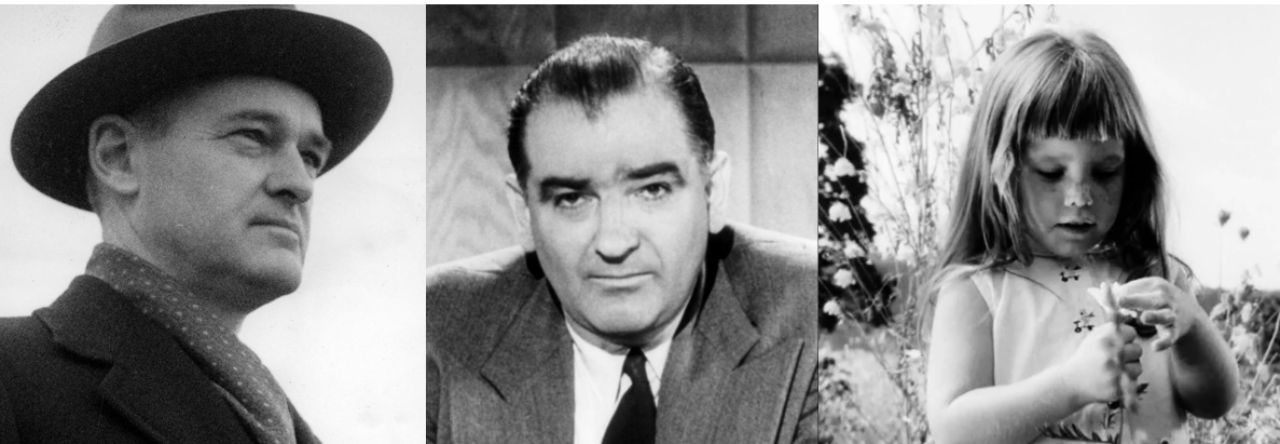Ideology, then, was not so much a guide to action as a justification for action already decided upon… More serious was the possibility of conquest by psychological means … It was against this contingency the strategy of containment was primarily aimed –not Soviet military attack, not international communism, but rather psychological malaise in countries bordering on Moscow’s sphere of influence that made them, and hence the overall balance of power, vulnerable to Soviet expansive tendencies. –John Lewis Gaddis on Kennan’s containment doctrine (chapter 2)
Churchill’s “Iron Curtain” speech in Fulton, Missouri (March 1946)
Churchill’s stern 1946 warning about the Soviets –delivered one month after Kennan’s “Long Telegram” circulated in Washingtion– highlighted a growing tension in superpower relations, a period that columnist Walter Lippmann described memorably as “The Cold War.” The US policy toward the Soviet Union which subsequently defined this Cold War period has come to be known as containment.
Principles of Grand Strategy
You have no idea how much it contributes to the general politeness and pleasantness of diplomacy when you have a little quiet armed force in the background. –George Kennan, 1946 (Gaddis, p. 38)
- National interest (balance of power)
- International rules of behavior (legalism)
- Realism (particularized) vs. Idealism (universalistic)
- Assessing means and ends
Kennan’s Containment Doctrine
- Five vital power centers (US, UK, Germany, USSR, Japan)
- Non-interventionism
- Security first, then democratic principles
- USSR was implacably hostile but not immediately aggressive
- Soviet communism challenged American democratic idealism
- Goals:
- Restore balance of power (political / economic aid)
- Exploit tensions within global communism (overt / covert)
- Modify Soviet behavior over time (counter-pressure)
Kennan’s Documents
- Long Telegram (Feb. 1946)
- X article (July 1947)
- National War College lectures (1947)
- Policy Planning Staff memos (1947-48)
Kennan’s Promoters
- James Forrestal
- Averell Harriman
- Arthur Krock
- George Marshall
Kennan’s Critics
- Dean Acheson
- Walter Lippmann
- Paul Nitze
- Henry Wallace

